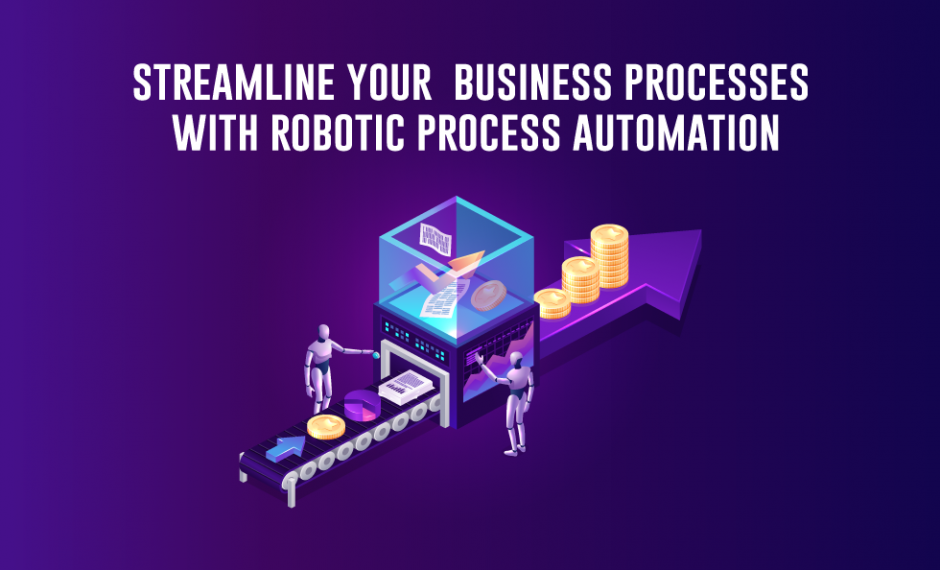Robotic Process Automation (RPA) is quickly becoming a driving force in enterprise digital transformations. Dubbed the “fastest-growing market in enterprise software” by Gartner, the RPA market grew by 63% in 2018, and Forrester estimates that the RPA market will grow to $2.9 billion by 2021. Why is this happening? Organizations are realizing the power of software Automation and its effects on process optimization; moreover, the speed and accuracy at which RPA bots catapult digital transformation initiatives across a variety of industries while cutting costs and increasing ROI.
Let’s explore exactly what RPA is, as well as the benefits RPA offers to organizations looking to optimize operational processes.
What is Robotic Process Automation (RPA)?
Robotic Process Automation (RPA) is a form of business process Automation technology based on metaphorical software robots or on artificial intelligence/digital workers that take the ’role’ of a human end-user to navigate a user interface. They use the UI to capture data and manipulate applications similar to the way a typical end-user would and perform a variety of repetitive tasks by triggering responses and communicating with systems.
Software robots can handle nearly any human user actions, such as:
- Logging into applications
- Moving files and folders
- Scraping data from the documents
- Reading and writing to databases
- Connecting to disparate systems & APIs
What are the Business Benefits of RPA?
Software robots and artificial intelligence (AI) are here to stay––the sooner your organization recognizes and accepts that, the sooner you can realize their benefits and develop a competitive advantage for your organization.
Starting an RPA implementation for your organization is a great way to improve:
- Accuracy: Once your software robots are trained on processes, the margin of error for those processes drops to 0. You can enjoy peace of mind knowing that your operational processes will not succumb to human error.
- Productivity: Software robots don’t require breaks, don’t adhere to a 40-hour workweek, and can’t become easily distracted as many humans may in this new era of remote work. You’ll have 24-hour coverage on all RPA-enabled processes. Also, human employees will also experience an increase in productivity, as bots will now be handling the mundane, repetitive tasks, allowing for your human employees to focus on tasks that require more cognitive thinking and problem-solving.
- Scalability: There is essentially no limit to the number of bots you can employ; adding more bots can be done quickly and with minimal costs.
- Cost Savings: By implementing RPA, you’ll experience a huge reduction in workforce, meaning you’ll experience a huge reduction in work-related costs. RPA can reduce costs by up to 80%, and many businesses experience a positive ROI within 12 months.
- Maintainability: Implementing RPA is extremely easy, and, once created, monitoring and management are easily understood in centralized dashboards.
Automated Testing has been long embraced as an enabler of faster cycles, higher quality, and reduced costs. However, as the name suggests, Automated Testing is limited to Software Testing tasks––and, while those benefits are fantastic, there is so much more to your business than just testing! RPA aims to take those same, well-celebrated benefits of Automation––faster cycles, higher quality, reduced costs––and apply it to other areas within your organization, allowing for business stability and resiliency in a time of uncertainty.

LogiGear’s Robotic Process Automation Solutions
The biggest challenges associated with implementing RPA often occur with a local team that lacks the expertise in Robotic Process Automation set up, implementation, creation, and optimization of bots. By partnering with an RPA service provider, you can receive expert RPA installation and maintenance that will modernize your SDLC, meaning fewer mistakes, higher quality, lower overall cost, and more speed.
LogiGear has formed a partnership with 3 industry leaders in the RPA space, Automation Anywhere, UiPath, and Blue Prism, in order to bring RPA and AI solutions to our global customers. Adding this expertise, along with our end-to-end testing services and suite of Automation Testing tools, allows us to better adapt and innovate to our customers’ changing needs. To learn more about LogiGear’s RPA solutions and engagement approach, check out our Robotic Process Automation Solutions landing page. With over 2 decades of Software Development and Automation expertise, LogiGear can turn RPA into your competitive edge by optimizing your bots and workflows, and increasing operational efficiencies.

